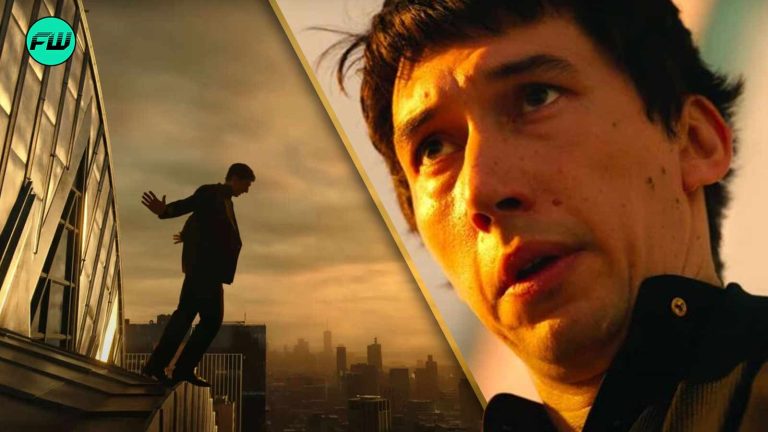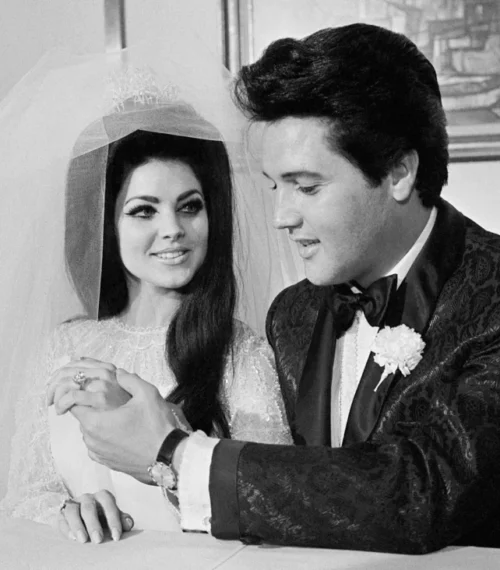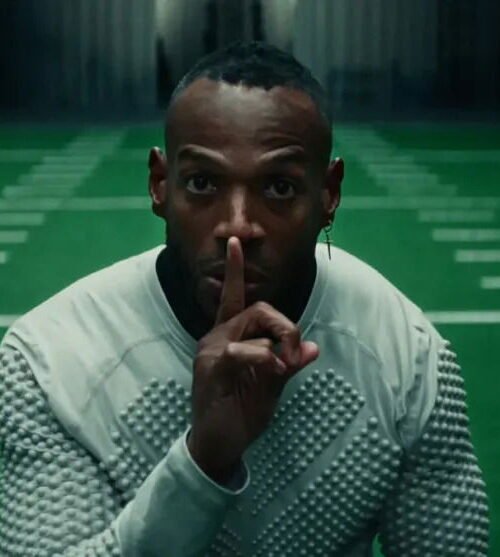Francis Ford Coppola’s Megalopolis was one of the most divisive films of last year, amassing a very vocal cult following despite many critics labeling it an ambitious misfire. Unbeknownst to fans, Coppola invited fellow filmmaker Mike Figgis (Leaving Las Vegas) to make a documentary about the production, and the result is Megadoc — a feature-length film that is often entertaining, if not particularly revealing.
Megadoc Review
Megadoc follows the cast and crew of Francis Ford Coppola’s long in-the-works epic Megalopolis as they navigate the master director’s unique vision. Coppola fans likely know that this is a film that has been in the works for decades, but it is important to note that this documentary is specifically about the version that was produced, only briefly addressing past iterations of the project. (We do get to see some screen test footage in which Gosling was playing the role eventually portrayed by Shia LaBeouf.)
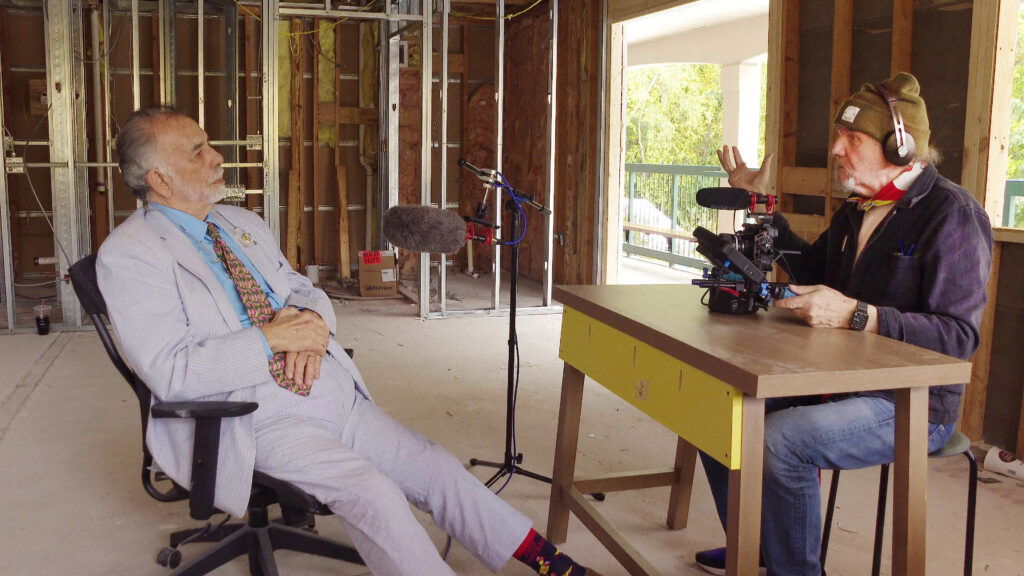
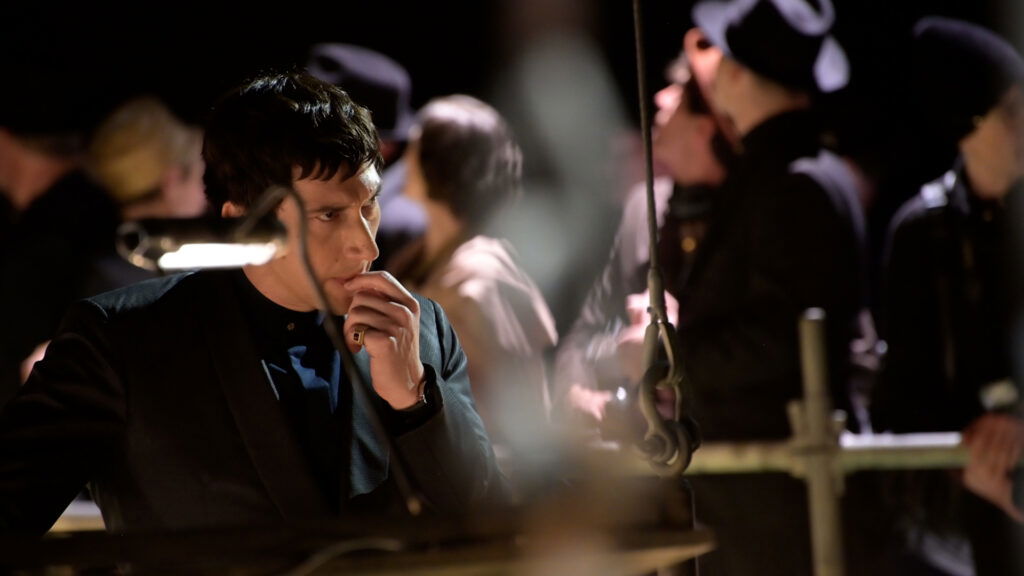

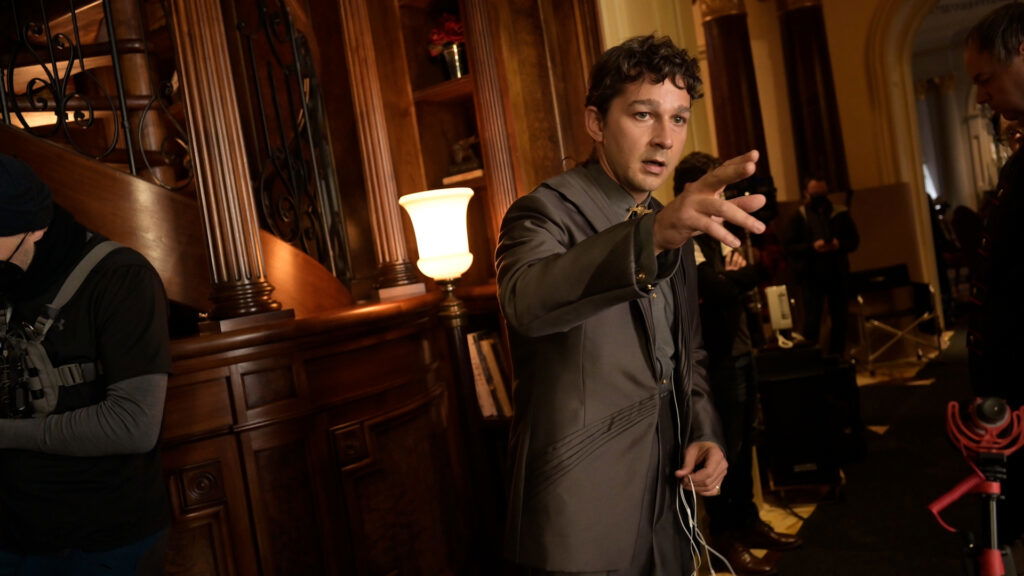
You might expect the film to follow Coppola closely, but that is not really the case. Coppola has a few sit-down interviews with Figgis, but the material he discusses in them is mostly the same stuff that you will have heard him talk about on the promotional circuit for the film or the lecture roadshow he did this past summer. That being said, it’s clear that he was very busy managing this production, so perhaps it shouldn’t be surprising that he had little time for a behind-the-scenes documentary.
Figgis seems to linger on the conflict that arose during filming between Coppola and one of the film’s lead actors, Shia LaBeouf. At this point, LaBeouf’s erratic nature is well-known to anyone inside and outside of the industry, and his unorthodox approach to acting — often clashing with Coppola’s also unorthodox methods of directing — makes for some compelling and dramatic nonfiction filmmaking. Many of these confrontations are even downright funny.
However, that doesn’t mean that the only story in Megadoc is the duel between LaBeouf and the director. There’s a big segment of the film that explores Aubrey Plaza’s role and how her own eccentric personality lent itself so exquisitely to her campy turn as Wow Platinum. Jon Voight also gets a decent amount of screen time, and it’s interesting to see his humility on set compared to the role he was playing. If you’re an Adam Driver fan, you may be disappointed, though — he rarely makes an appearance.
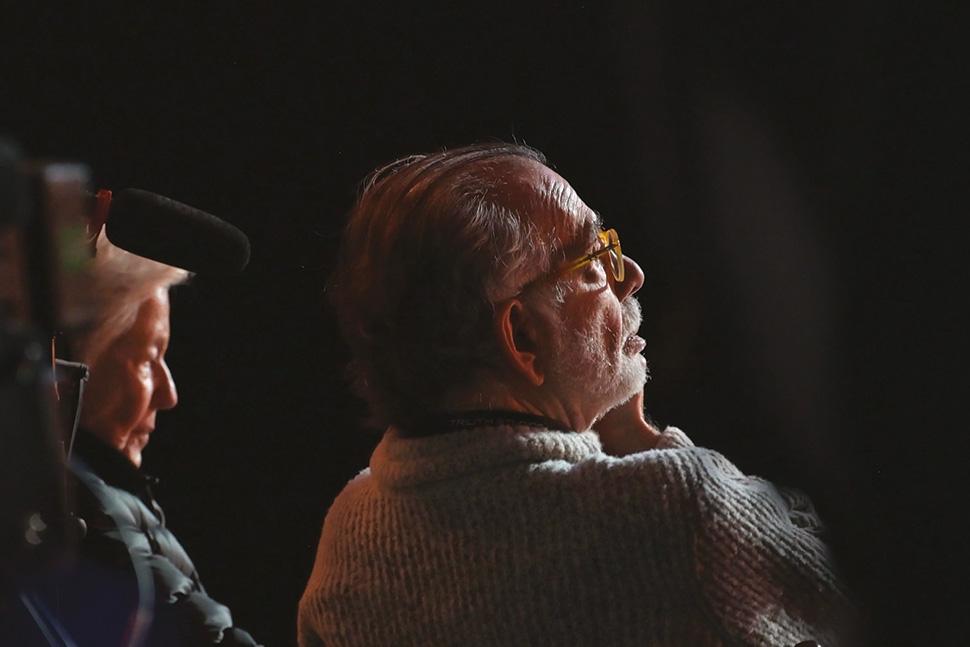
One of the most refreshing things about Megadoc is that it is not falling over itself with praise for the production it depicts. Many of the actors admit they don’t really understand what Coppola was going for with Megalopolis, and while Figgis clearly (and rightfully) admires the ambition that the master filmmaker brought to the table, he also understands that it’s a chaotic, messy shoot — much like some of the others that cemented Coppola as one of the most iconic filmmakers of all time.
That being said, there is one area in which Megadoc’s adulation seems unearned: the production values of the documentary. Once in the film, Figgis praises himself for the “good angles” he’s using to capture the actors with, and that compliment doesn’t feel accurate. At best, it’s straightforward fly-on-the-wall footage. At worst, it’s genuinely ugly. For a director who’s been nominated for an Academy Award, you expect a bit more in the way of showmanship.
The other through-line in the film involves Figgis himself, as he explores his role as a filmmaker documenting this unorthodox production. It’s an interesting angle for cinephiles — and if you’re watching a documentary about the creation of Megalopolis, you probably are one. There aren’t a ton of films about documentary ethics, so even though Megadoc does not exactly go into depth with it, it still works because it feels so unique.
Is Megadoc worth watching?
Ultimately, Megadoc feels like a very standard behind-the-scenes documentary. It’s not insightful if you’re well-read on Megalopolis and/or have heard Coppola speak about the film, but it’s a pretty entertaining watch, nonetheless. Just don’t expect something to the level of Hearts of Darkness, and you’ll likely enjoy it.
Megadoc hits theaters on September 19.


